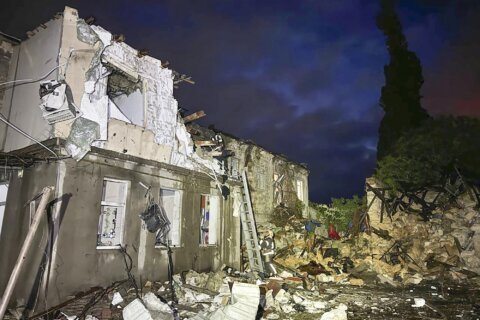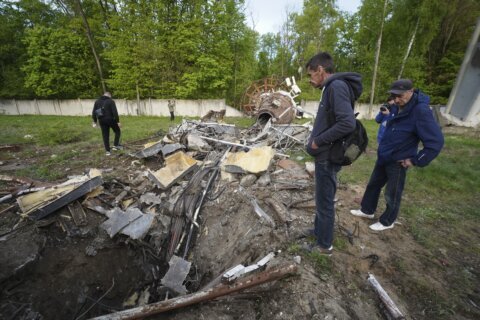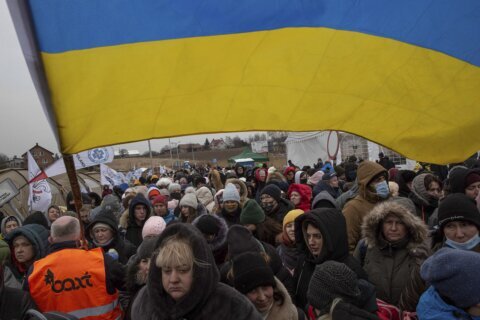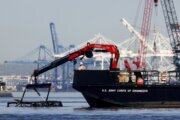BELGRADE, Serbia (AP) — Supporters of Serbian right-wing opposition parties on Friday demanded that populist President Aleksandar Vucic and his government resign over a Western-backed plan for normalizing relations with neighboring Kosovo.
In Belgrade, several hundred people held banners reading “No to capitulation,” or “Vucic resign,” in what they described as a “warning protest” against the 11-point plan that U.S and European Union officials say is a way out of the decades-old dispute between the former Balkan war foes.
Similar gatherings were held in several other towns.
Friday’s protest outside the government headquarters also coincided with the start of the NATO bombing of Serbia in 1999, which ended Belgrade’s brutal crackdown against separatist ethnic Albanians in Kosovo and forced Serbia to pull out of its former province.
Kosovo, the majority of whose people are ethnic Albanians, in 2008 declared independence from Serbia, which has been recognized by the United States and most EU countries but not by Belgrade, Russia and China.
The Western plan for Kosovo envisages that Serbia and Kosovo normalize relations without formal recognition. Serbia would no longer block Kosovo’s participation in international organizations, while Kosovo would provide self-rule for its Serb minority.
Washington and Brussels recently have stepped up efforts to solve the problem, fearing that Russia could try to stir trouble in the volatile Balkan region to avert attention from its war in Ukraine.
Nationalists in Serbia have criticized the agreement as a de-facto recognition of Kosovo by Serbia. They have demanded that Serbia reject the deal, although EU officials said normalization of ties with Kosovo is a condition for progress toward EU membership. Both countries want to join the bloc, and have been told to mend their ties first.
Around 13,000 people, mostly ethnic Albanians, were killed in the conflict in Kosovo. NATO bombed Serbia for 78 days, destroying infrastructure and army facilities, including military and police buildings in the very center of Belgrade.
President Vucic, himself a former extreme nationalist who was part of the government in 1999, has described the NATO bombing an “aggression.” Anti-NATO sentiments remain high in Serbia more than two decades later.
Copyright © 2024 The Associated Press. All rights reserved. This material may not be published, broadcast, written or redistributed.







